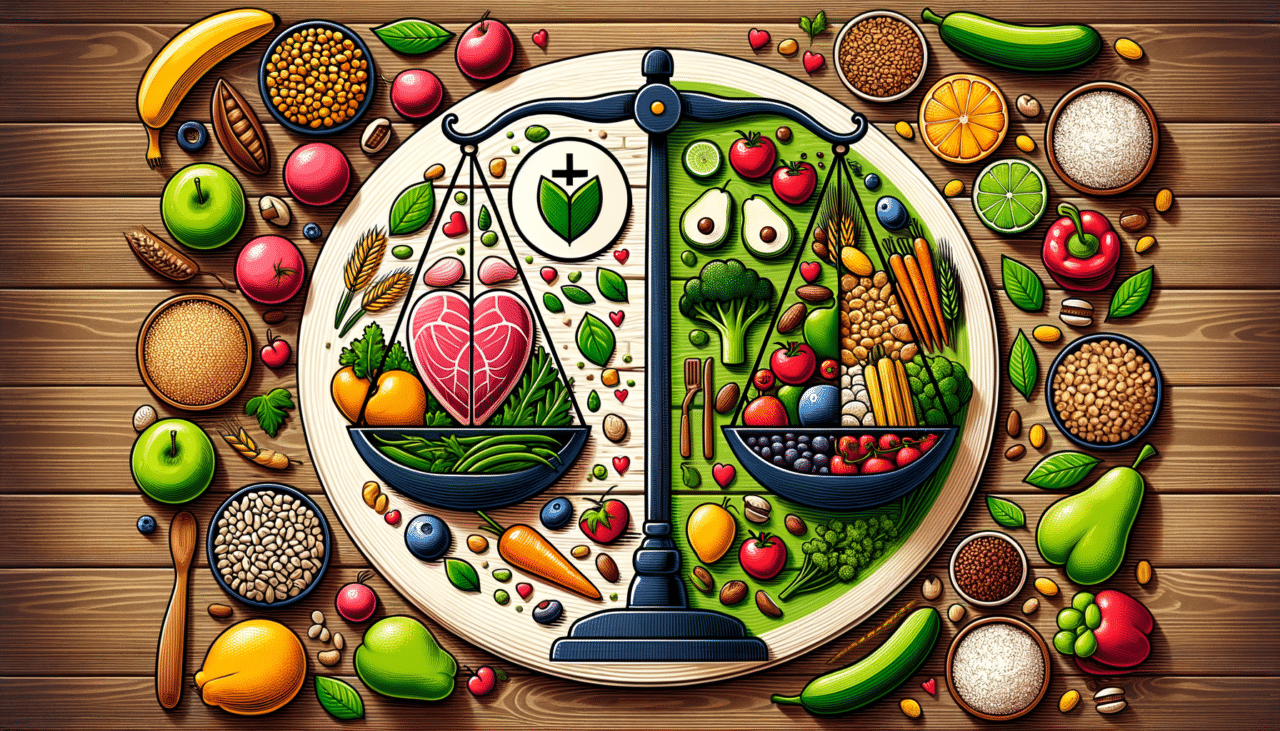In the rapidly evolving world of nutrition and health, choosing the right diet can be a daunting task. Two popular dietary approaches that have gained significant attention are the DASH Diet and the Plant-Based Diet. Both diets offer unique benefits and cater to different nutritional needs. In this article, we’ll delve into the specifics of each diet, highlighting their characteristics, benefits, and differences through a detailed comparative table. Whether you’re looking to lower your blood pressure, manage weight, or improve overall health, understanding these diets can help you make an informed decision.
Characteristics of the DASH Diet
The DASH Diet, which stands for Dietary Approaches to Stop Hypertension, is specifically designed to combat high blood pressure. Here are some key characteristics:
-
Focus on Nutrient-Rich Foods: Emphasizes the consumption of fruits, vegetables, whole grains, lean proteins, and low-fat dairy. It’s rich in nutrients such as potassium, calcium, and magnesium, which are known to help lower blood pressure.
-
Reduced Sodium Intake: Encourages a reduction in sodium intake, with recommendations often suggesting keeping it below 2,300 mg per day, and ideally aiming for 1,500 mg for better blood pressure control.
-
Balanced Macronutrients: Promotes a balanced intake of carbohydrates, proteins, and fats, ensuring that each macronutrient is consumed in moderation.
-
Limited Saturated Fats and Sugars: Advises cutting back on foods high in saturated fats, like fatty meats and full-fat dairy products, as well as reducing sugar intake.
-
Evidence-Based: Supported by numerous studies, the DASH Diet is endorsed by health organizations, including the American Heart Association, for its effectiveness in reducing blood pressure and improving heart health.
Characteristics of the Plant-Based Diet
The Plant-Based Diet emphasizes the consumption of foods derived from plants. Here are its main characteristics:
-
Whole Foods Emphasis: Focuses on whole, minimally processed foods, including fruits, vegetables, grains, nuts, seeds, and legumes. It encourages consuming foods in their natural form.
-
Flexibility: While primarily plant-focused, it can be tailored to individual preferences. Some people incorporate small amounts of animal products, whereas others may choose to go completely vegan.
-
Nutrient-Dense: Often high in fiber, vitamins, and phytonutrients, and low in saturated fats, which contribute to improved digestive health and reduced risk of chronic diseases.
-
Environmental and Ethical Considerations: Many choose a plant-based diet for its lower environmental impact and ethical considerations concerning animal welfare.
-
Weight Management: Linked to weight loss and maintenance, as plant-based foods tend to be lower in calories and higher in satiety-promoting nutrients.
DASH Diet vs. Plant-Based Diet: Comparative Table
| Feature | DASH Diet | Plant-Based Diet |
|---|---|---|
| Primary Focus | Lowering blood pressure | Emphasizing plant foods for overall health |
| Food Emphasis | Fruits, vegetables, whole grains, lean proteins | Whole, minimally processed plant foods |
| Sodium Intake | Limited (1,500-2,300 mg/day) | Not specifically restricted, but naturally lower |
| Protein Sources | Lean meats, fish, poultry, plant-based options | Primarily plant-based, optional limited animal products |
| Fat Intake | Low in saturated fats | Naturally lower in saturated fats |
| Vitamins & Nutrients | High in potassium, calcium, magnesium | High in fiber, vitamins, phytonutrients |
| Flexibility | Structured with specific guidelines | Flexible, adaptable to preferences |
| Health Benefits | Reduces blood pressure, improves heart health | Supports weight management, reduces chronic disease risk |
| Environmental Impact | Not specifically addressed | Generally lower due to reduced animal product consumption |
| Ethical Considerations | Not specifically addressed | Aligns with ethical concerns about animal welfare |
Conclusion
Both the DASH Diet and the Plant-Based Diet offer unique benefits and can be tailored to individual health goals. The DASH Diet is particularly effective for those looking to manage blood pressure and improve heart health, while the Plant-Based Diet provides a flexible approach to nutrition, emphasizing whole foods and offering potential benefits for weight management and reduced chronic disease risk.
Ultimately, the choice between these diets depends on personal health goals, lifestyle preferences, and ethical considerations. Consulting with a healthcare professional or a registered dietitian can provide personalized guidance to help you choose the diet that best aligns with your needs.
Whether you choose the DASH Diet, a Plant-Based Diet

Comments (0)
There are no comments here yet, you can be the first!